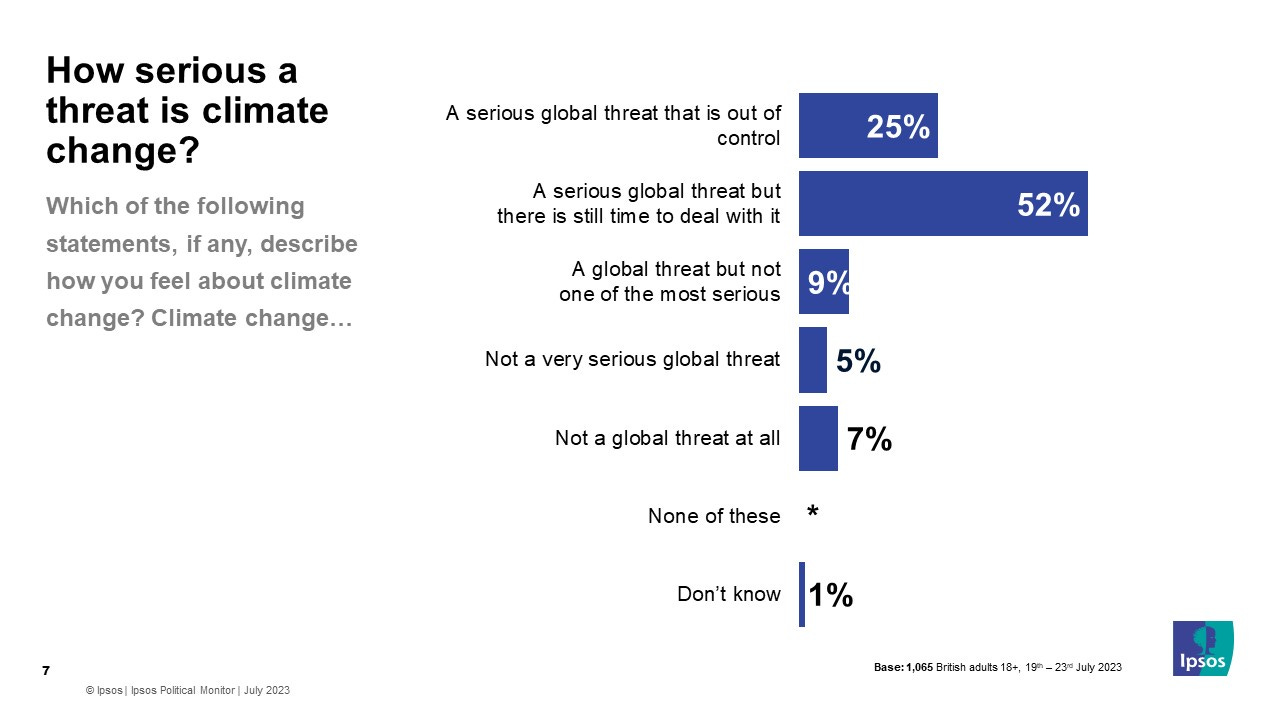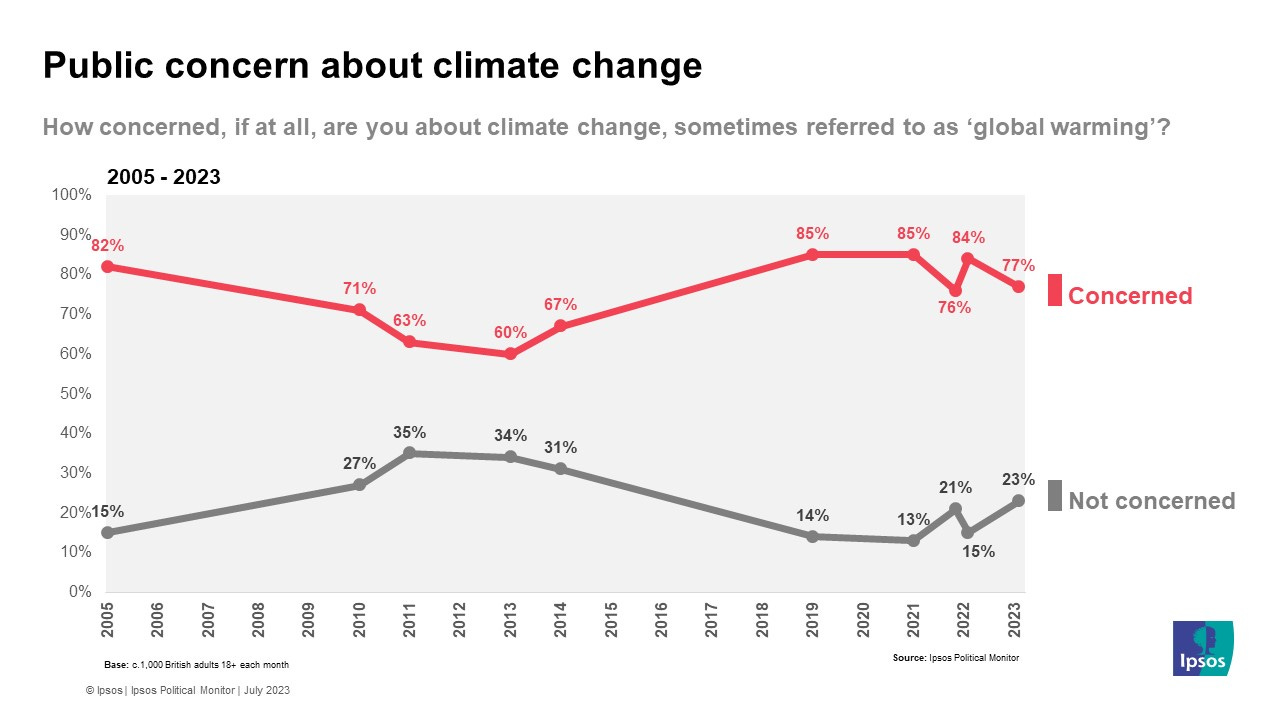Welcome to this week’s edition which takes a look at the latest polling on what the public wants for the government on the environment.
But first, this week’s gentle sigh of disappointment is directed to The i, previously singled out for the quality of its opinion poll reporting but in the last week doing the classic banner page headline for a poll movement within the margin of error (and even if real, quite possibly unconnected to the topic given headline treatment).
As ever, if you have any feedback or questions prompted by what follows, or spotted some other recent polling you’d like to see covered, just hit reply. I personally read every response. (And with apologies to those who have emailed in the last week. I’m just back from holiday and now catching up on replies.)
Been forwarded this email by someone else? Sign up to get your own copy here.
If you’d like more news about the Lib Dems specifically, sign up for my monthly Liberal Democrat Newswire.
My privacy policy and related legal information is available here. Links to purchase books online are usually affiliate links which pay a commission for each sale. Please note that if you are subscribed to other email lists of mine, unsubscribing from this list will not automatically remove you from the other lists. If you wish to be removed from all lists, simply hit reply and let me know.
Three pollsters, one story on the environment
Environmental policies have been in the news a lot following the surprise Conservative victory in the Uxbridge and South Ruislip by-election, widely put down to their opposition to the expansion of London’s ultra-low (vehicle) emission zone, ULEZ.1
We’ve also had a burst of recent polling on green issues too, so let’s see what that tells us about the public’s views and how likely an anti-net zero / anti-green / anti-recycled paper2 push is likely to help the Conservatives.
First off, we have new data from Ipsos, telling us three in four people think climate change is a serious global threat (77%).
Nor does Ipsos find the public is impressed with the government on the issue. Only one in four think Rishi Sunak’s government are doing a good job dealing with climate change (26%) and 59% say a bad job.
Given how high the levels of concern are, it’s a fair inference that people are giving the government the thumbs down for not doing enough rather than doing too much.3
But we don’t have to infer very much because we have another pollster with another poll. This time Opinium as covered by The Times:
The majority of Tory voters who plan to switch to Labour in the next election think that Rishi Sunak has not done enough on climate change, according to polling that comes as the Conservatives consider rowing back on green policies…
Polling of 3,000 adults by Opinium found that, for voters who voted Tory in 2019 and planned to vote Labour next year, 57 per cent felt the Prime Minister had “not gone far enough” on tackling climate change. Only 9 per cent thought he had gone too far, 25 per cent thought he had it about right and 10 per cent did not know.
To give more detail from the poll on what people think of the government’s record:
Let’s round off with a third pollster, More in Common:
Our latest issues tracker finds that climate is currently a more salient issue than it’s been for months, and ranks higher in the list of public concerns than other issues - such as small boat channel crossings, which get more media and political airtime.
In fact, our polling tells us that far from being sceptical about green issues, voters are nearly five times more likely to say that the government is not doing enough on climate change than say they are doing too much. Even those in the most conservative segments are much more likely to think the Government is not doing enough.
What’s more:
We know that Red Wall voters, who are best reflected by our Loyal National segment, have some of the highest levels of concern about climate change. Why? Because as the group with by far the highest level of threat perception they are the most moved by the danger that climate change poses to them, their families and their communities.
It’s worth remembering that even with all the above, some other issues consistently rank higher in the list of voter concerns.
But if that limits somewhat the electoral benefits of pushing green policies, it also reinforces the overall point: about how limited mileage there is in pushing an overall anti-environmental action stance.
There may be mileage in picking off specific, poorly designed green policies, which is something canny politicians are wise to. But overall, being anti-green is the way to electoral failure, not electoral success.
Know other people interested in political polling?
Refer friends to sign-up to The Week in Polls too and you can get up to 6 months of free subscription to the paid-for version of this newsletter.
National voting intention polls
An update on the Michael Foot yardstick: only one pollster has their latest poll showing the Conservatives doing better than Labour did in its near-party destroying 1983 landslide defeat under Michael Foot in 1983 (28%).
Here are the latest figures from each currently active pollster:
For more details and updates through the week, see my daily updated table here and for all the historic figures, including Parliamentary by-election polls, see PollBase.
Last week’s edition
How did the polls do in the Parliamentary by-elections?
Which media outlets people most trust, and other polling news
These weekly round-ups are for paying subscribers only, but you can sign up for a free trial to read them straight away.
Keep reading with a 7-day free trial
Subscribe to The Week in Polls to keep reading this post and get 7 days of free access to the full post archives.






